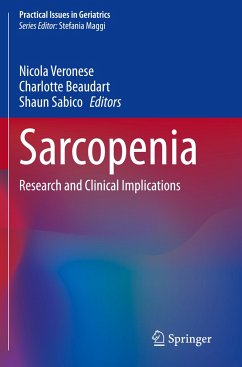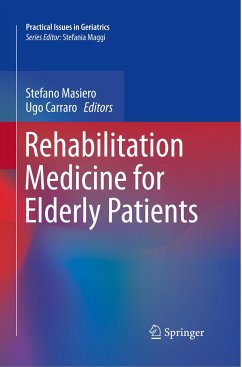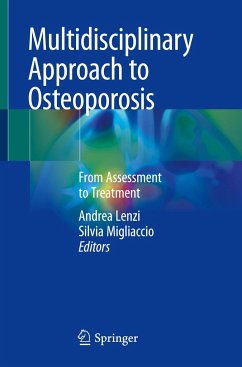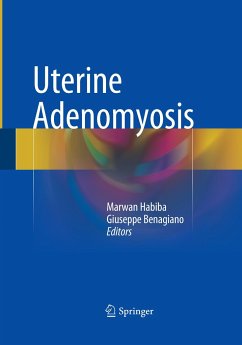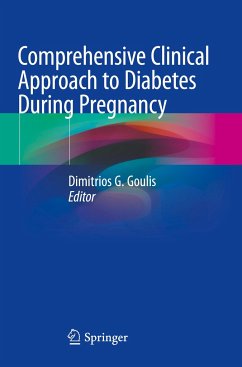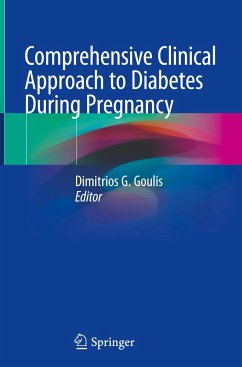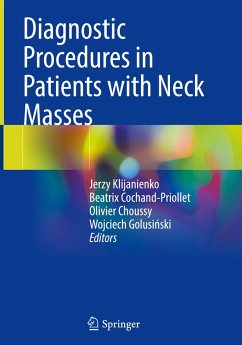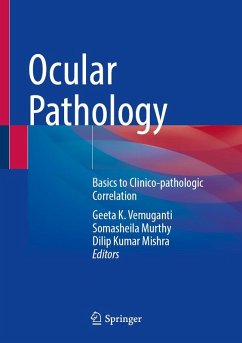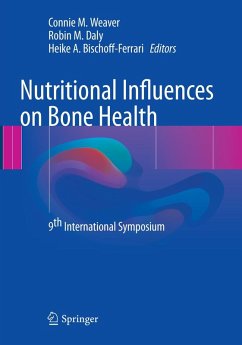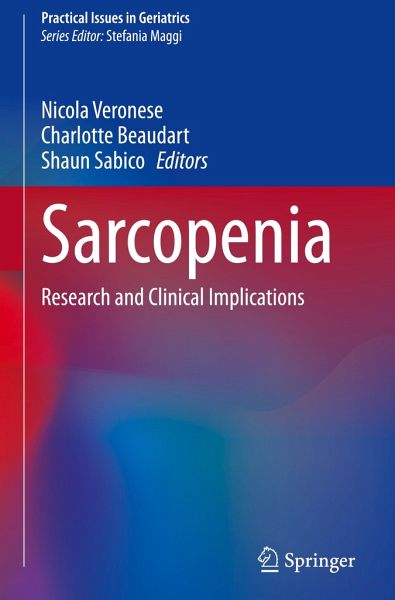
Sarcopenia
Research and Clinical Implications
Herausgegeben: Veronese, Nicola; Beaudart, Charlotte; Sabico, Shaun

PAYBACK Punkte
38 °P sammeln!
This book offers a concise and updated guide for all readers (physicians and non-physicians) interested in gaining a comprehensive and precise understanding of sarcopenia.Over the last several years, sarcopenia has increasingly developed from being a concept known only in research settings to one that is commonly explored in journals and scientific meetings for various disciplines, such as geriatrics, rheumatology and rehabilitation medicine. Thus, all domains of sarcopenia, from molecular aspects to clinical management, represent highly active areas of research and clinical practice for healt...
This book offers a concise and updated guide for all readers (physicians and non-physicians) interested in gaining a comprehensive and precise understanding of sarcopenia.
Over the last several years, sarcopenia has increasingly developed from being a concept known only in research settings to one that is commonly explored in journals and scientific meetings for various disciplines, such as geriatrics, rheumatology and rehabilitation medicine. Thus, all domains of sarcopenia, from molecular aspects to clinical management, represent highly active areas of research and clinical practice for health professionals in a variety of fields, including geriatric medicine, nutrition, and epidemiology. Despite being a relatively new concept in medicine, sarcopenia is increasingly being recognized as an important determinant of other health conditions, including mortality and disability.
This book, written by experts from around the globe, covers several core aspects of sarcopeniamanagement, from molecular mechanisms to genetics, epidemiology, diagnosis and finally treatment, including the clinical impact of sarcopenia as a risk factor, the known genetic and molecular aspects that can aid in predicting sarcopenia, and selected treatment and therapy concepts, including indications for nutrition and physical exercise. Sharing data from the latest studies, it will be of considerable interest not only for geriatricians, but also for a wide range of other readers.
Over the last several years, sarcopenia has increasingly developed from being a concept known only in research settings to one that is commonly explored in journals and scientific meetings for various disciplines, such as geriatrics, rheumatology and rehabilitation medicine. Thus, all domains of sarcopenia, from molecular aspects to clinical management, represent highly active areas of research and clinical practice for health professionals in a variety of fields, including geriatric medicine, nutrition, and epidemiology. Despite being a relatively new concept in medicine, sarcopenia is increasingly being recognized as an important determinant of other health conditions, including mortality and disability.
This book, written by experts from around the globe, covers several core aspects of sarcopeniamanagement, from molecular mechanisms to genetics, epidemiology, diagnosis and finally treatment, including the clinical impact of sarcopenia as a risk factor, the known genetic and molecular aspects that can aid in predicting sarcopenia, and selected treatment and therapy concepts, including indications for nutrition and physical exercise. Sharing data from the latest studies, it will be of considerable interest not only for geriatricians, but also for a wide range of other readers.



